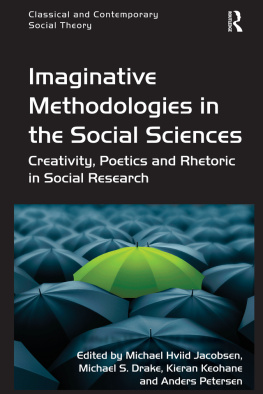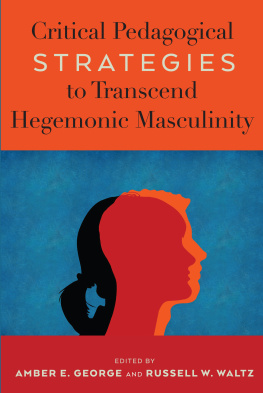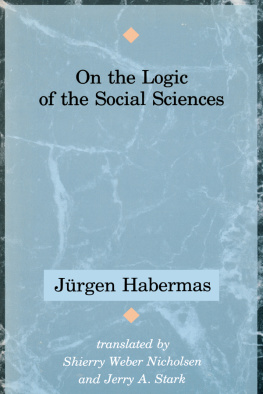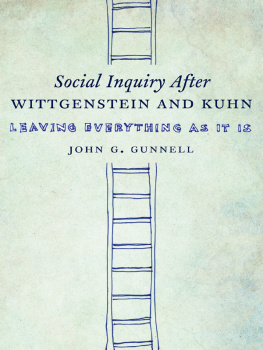Foreword
From the beginning of the 1990s onwards, irrespective of individ u al terminological preferences, we have been living in a new age of the world, namely "The Era of Globalization." Whether we take it positively or negatively, we have to acknowledge that the ove r whelming wave of globalization in the fields of economics, politics, society, culture or whatever arena we take into consideration has been connecting every corner of the world and shrinking the globe.
At the same time, we also recognize that globalization has more often than not brought about and strengthened the power imba l ance between " the center, " i.e. Euro-American developed countries, and " the peripheral, " i.e. mostly non-Euro-American developing countries. That is why some opponents of globalization criticize it for being nothing more than "Americanization" or "McDonaldiz a tion." The field of social sciences is no exception to this criticism in that its theories, methods, presumptions, objectives, scopes have long been based on, (re)produced within, and dominated by E u ro-American traditions.
Accordingly, those social scientists who are sensitive to und e sirable situations in the present globalized world are strenuously addressing the issues of Euro-American-centric hegemonic social sciences. The World Social Sciences and Humanities Network (W orld SSH Net) is one of the most active networks of social scie n tists problematizing the hegemonic social sciences in the era of globalization. According to the mission statement articulated on its website (http://www.worldsshnet.org/home), the World SSH Net 1) aims to develop a world social sciences and humanities comm u nity, beyond the hegemonic patterns of Western science, 2) reflects on social phenomena worldwide, beyond the theoretical fram e works of nationally confined societies, and 3) promotes dialogue and cooperation between scholars from the social sciences and the humanities, beyond the boundaries of disciplines.
This book, Theories about and Strategies against Hegemonic Social Sciences, represents one of the recent results of the World SSH Net ' s endeavors to materialize its mission. On 12/13 May 2012, the World SSH Network held a " thinkshop, " entitled " Theories about and Strategies against Hegemonic Social Sciences," in Tokyo, which was co-sponsored by the Center for Glocal Studies, Seijo University, Japan, and the Calouste Gulbenkian Foundation, Po r tugal. The papers presented at the thinkshop were elaborated a f terwards by their respective contributors by incorporating the ou t comes of the discussion and published in this book.
The Center for Glocal Studies (CGS) is a research center esta b lished just four years ago at Seijo University for 1) formulating and establishing a new research field, " glocal studies, " and 2) promo t ing this new field. Refining the concept of " glocalizati on," which was introduced by the British sociologist Roland Robertson in the middle of the 1990s, the center has tried to formulate "glocal stu d ies" in order to shed light on hitherto inadequately examined s o cio-cultural dynamics within myriad "contact zones" between the "global and local," the "central and peripheral," and the "external and internal" realities of various different groupings and/or co m munities. In conducting glocal studies, the CGS focuses on deve l opments that symmetrize what is thought of as an asymmetrical socio-cultural power balance between Euro-American and non-Euro-American nations. In this sense, the Center for Glocal Studies shares the same interests as the World SSH Net and the contributors to this book.
Since its establishment, the CGS has organized and held many symposiums, workshops and lectures on glocalization. Meanwhile, one of our colleagues, Prof. Shujiro Yazawa, and the president of the World SSH Net, Dr. Michael Kuhn, suggested to us that the c enter would be a co-sponsor of a thinkshop focusing on changing scientific concepts and paradigms in the era of globalization. As we share the same interests and views, the center wholeheartedly agreed and decided to co-sponsor the thinkshop as part of our r e search endeavors.
At the subsequently held thinkshop, 17 social scientists from Europe, Africa, South/East/Southeast Asia and Central America came together and presented their expertise and discussed theories about and the strategies against the hegemonic social sciences. At the thinkshop, I, as one of its participants sometimes witnessed heated debate over sensitive issues, such as the concept of human rights. The debate sometimes became so hot that short cooling-off breaks were needed. As a whole, however, the thinkshop effectively functioned as a "platform" for revealing less visible reflections on the world social science system.
I am confident that the accomplishments published in this pr e sent book represent a small but invaluable step forward for every social scientist willing to face up to one of the most irresolvable challenges in the era of globalization; developing theories about and strategies against the hegemonic social sciences.
Professor Tomiyuki Uesugi
Director
Center for Glocal Studies (CGS)
Seijo University
Preface
This book is a publication of the project "Social Sciences in the Era of Globalization," conducted by KNOWWHY GLOBAL RESEARCH in collaboration with the World SSH Net, funded by the Calouste Gulbenkian Foundation. The aim of this project is to engage a group of international and interdisciplinary scholars about the challenges the social sciences are facing in the era of globalization.
Since the publication of the Wallerstein Report in 1996, su b stantial changes in world conditions have dramatically altered the social sciences and the way social scientists view their discipline. These have affected the social sciences more than any para digmatic shift of theories within a given approach to science ever could do. To mention only a few:
First, the transformation of the only real alternative society sy s tem, the project of socialism in the Soviet Union, later followed by China, into globally acting market economies, the very society model the Soviet Union, China, and their allies around t he world had opposed for almost a century.
Second, together with the dissolution of this alterative society model, the abolishment of an alternative science system and of an alternative approach to social science thinking has transformed Historical Materialism, the set of theories fundamentally o pposing the science model of capitalism and their representative democr a cies and its scientific interpretations of the world, into a mere var i ation of the multiplicity of relativized theories within the Western science system.
This, the transformation of the whole world into an arena for the competition for power between nation-states and using the growth of global capital to exploit this growth for their global poli t ical power, called " globalization, " has shifted the battle b etween antagonistic science approaches into a competition about theories within the Western model of science reflecting about a widely un i fied worldand into a "battle of cultures" with a newly emerging opposition. Overcoming the threat of a war between the two world society systems and the unification of the world under the regime of global capitalism has replaced the threat of a hot' war between the two world powers by a world of wars.
Thirdly, probably based on the same Western model of science, the emergence of new science universes, have eroded the global scientific monopoly and theories, so far mainly created in Europe and the United States. It is evident that significant and power ful science arenas are emerging in countries like China, India, Brazil, South Africa, Korea, and Mexico. Namely, both the sciences in China and India are growing rapidly and have the potential to b e come global scientific superpowers.






